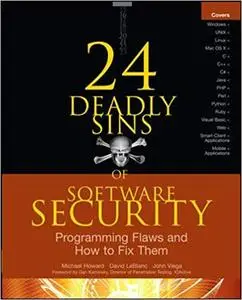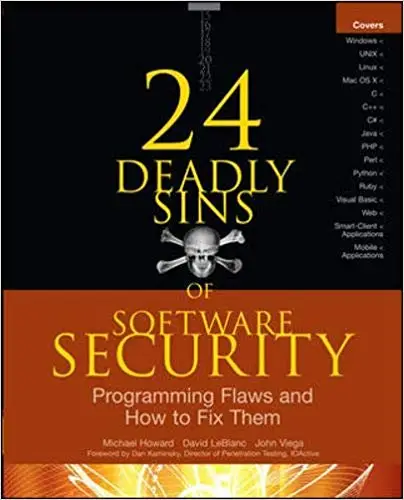Michael Howard, "24 Deadly Sins of Software Security: Programming Flaws and How to Fix Them"
English | ISBN: 0071626751 | 2009 | 432 pages | EPUB | 2 MB
English | ISBN: 0071626751 | 2009 | 432 pages | EPUB | 2 MB
Publisher's Note: Products purchased from Third Party sellers are not guaranteed by the publisher for quality, authenticity, or access to any online entitlements included with the product.
Eradicate the Most Notorious Insecure Designs and Coding Vulnerabilities
Fully updated to cover the latest security issues, 24 Deadly Sins of Software Security reveals the most common design and coding errors and explains how to fix each one-or better yet, avoid them from the start. Michael Howard and David LeBlanc, who teach Microsoft employees and the world how to secure code, have partnered again with John Viega, who uncovered the original 19 deadly programming sins. They have completely revised the book to address the most recent vulnerabilities and have added five brand-new sins. This practical guide covers all platforms, languages, and types of applications. Eliminate these security flaws from your code:
SQL injection
Web server- and client-related vulnerabilities
Use of magic URLs, predictable cookies, and hidden form fields
Buffer overruns
Format string problems
Integer overflows
C++ catastrophes
Insecure exception handling
Command injection
Failure to handle errors
Information leakage
Race conditions
Poor usability
Not updating easily
Executing code with too much privilege
Failure to protect stored data
Insecure mobile code
Use of weak password-based systems
Weak random numbers
Using cryptography incorrectly
Failing to protect network traffic
Improper use of PKI
Trusting network name resolution



